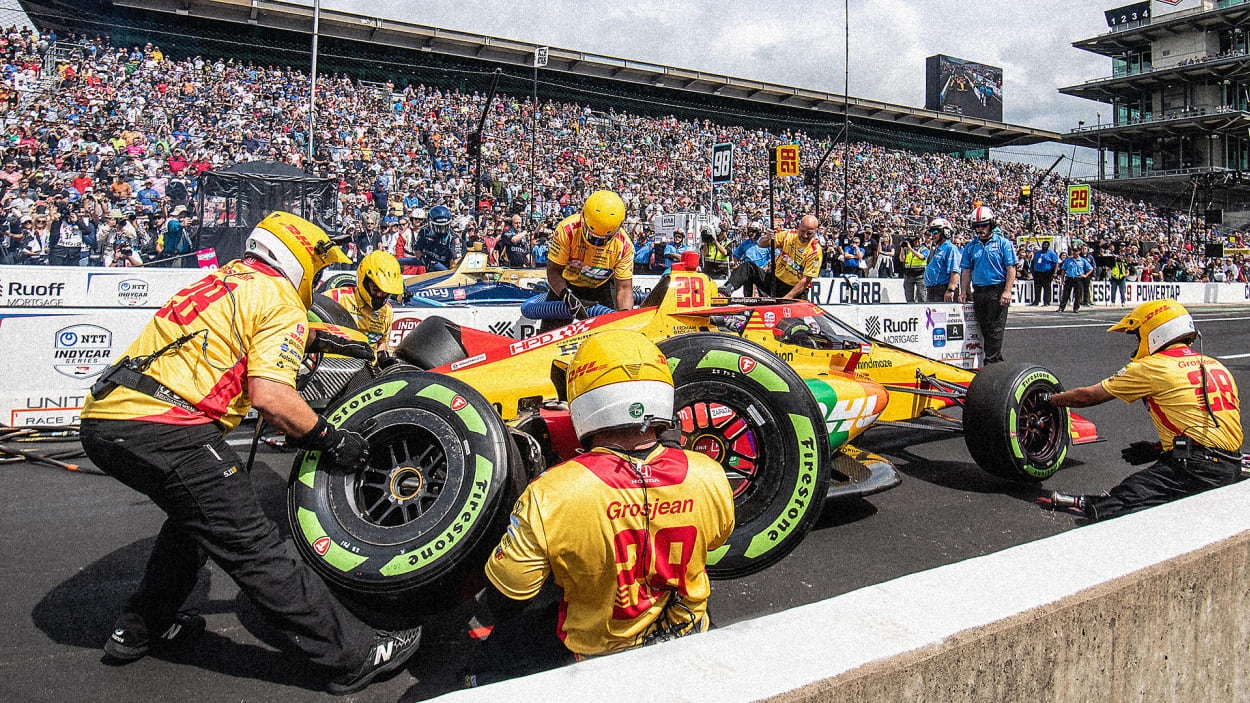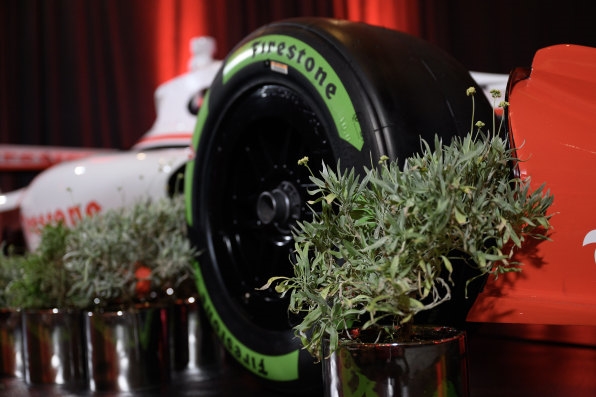
In the Southern Arizona desert, Tempe Farming usually grows crops like alfalfa and cotton. But last spring, farmer Will Thelander also started growing a crop called guayule. It’s a small desert shrub that can survive without irrigation—and that Bridgestone, the tire manufacturer, plans to use to make rubber for tires.
Bridgestone, the largest tire manufacturer in the world, has spent the last decade researching how the plant can be used to make rubber. Now, the company is investing $42 million to scale up commercial production of the natural rubber. Tempe is one of multiple farms in the Southwest, collectively covering more than 25,000 acres, that will supply the shrub to Bridgestone’s first large guayale-based factory.

“This is not a research project,” says Nizar Trigui, chief technology officer at Bridgestone Americas. “Now we want to scale this.”
The idea of using guayule to make rubber isn’t new, as the shrub naturally produces rubber in its stem to help protect itself on cold nights in the desert. Some limited production began in the early 1900s, using guayule grown in Mexico, but that stopped because of the Mexican Revolution. During World War II, when the U.S. couldn’t access rubber from rubber trees in Southeast Asia, experiments with guayule restarted. But research at that time also accelerated the development of synthetic rubber, and fossil fuel-based rubber now dominates the market.
Most tires on passenger cars use 90% synthetic materials now; 10% still comes from rubber trees, a species called Hevea, to make the tires durable. Tires used for heavy loads, like big trucks, are still made completely from natural rubber. “Natural rubber has unique properties that we have not figured out how to synthesize yet,” says Trigui. But rubber trees grow in a limited tropical area, are labor intensive to harvest, and are susceptible to disease. Climate change may limit supplies even more as rising temperatures affect rubber yield, and extreme weather makes it harder to harvest.
Finding a viable replacement for the synthetic material used in current tires is part of the company’s sustainability plan, but it also has a practical reason to find an alternative. The synthetic material used in tires now comes from a byproduct of producing fuels, and as vehicles become electric, less of that byproduct will be available.

Bridgestone’s team spent years breeding a version of the guayule plant that could produce the maximum amount of rubber. They also designed a new machine to harvest the crop automatically, so the process would be as efficient as possible. The cost of production needed to be commercially viable. “It’s something that should be good for society, but also good for business,” Trigui says. Then they built a pilot production plant to prove that the process worked. Other companies are testing rubber made from dandelions, but Trigui argues that only guayule is ready to scale up now.
The rubber performs as well as, or better than, traditional natural rubber, the company says. In one recent test, it debuted a tire with a sidewall made from guayule at an IndyCar race in Nashville. “We use racing as a testbed,” says Trigui. “In a very demanding application, like open wheel racing in IndyCar, we have shown that it actually gives us similar or better performance.”
The $42 million investment will be used to build a large biorefinery plant to process the shrub into rubber for tires. The company is also beginning to talk with government agencies that may eventually incentivize farmers to shift to the crop in the face of the Southwest’s ongoing mega-drought. The 25,000 acres that will grow the crop now are just a beginning: The company estimates that it will meet just 10% of its demand for rubber in the U.S.
(8)









